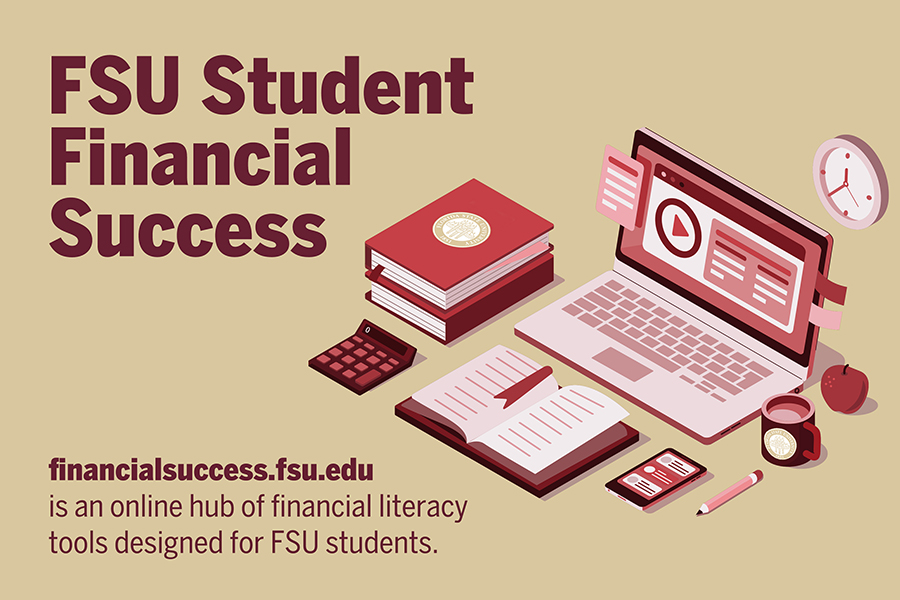
Ask students about their biggest concerns and college costs are sure to be in the top five answers.
Florida State University recognizes that affordability is key to improving degree attainment and attracting first-generation and low-socioeconomic students, along with providing students access to resources that increase financial literacy as they navigate college and life after graduation.
To better arm students with financial know-how, FSU has created financialsuccess.fsu.edu, an online hub of financial literacy tools for students. The comprehensive website features resources related to paying for college, planning and budgeting, banking and credit, investments and insurance and taxes. It also offers information on financial literacy courses and training programs, events and external resources.
Provost Sally McRorie, who sponsored the project, recognized the need to consolidate and expand the information available to current and prospective FSU students.
“It doesn’t matter how much information we have for our students if they can’t find it,” she said. “We wanted to create one place they can go to gain these important life skills and insights.”
The new financial success online hub is an extension of FSU’s long-standing student success initiative, said Associate Provost Rick Burnette, who led the project.
“FSU has continuously expanded its student success efforts to prepare students to navigate the college experience and successfully transition to their post-graduation life, and financial success is an essential part of that,” Burnette said. “Students have increased needs and expectations about graduating with skills that may not always be taught in the classroom.”
The hub features easy access to the financial literacy “badge” programs at FSU, which allow students to document the skills and experiences they gain through these courses for future employers.
“Live Well Financially,” a badge course offered by the Center for Health Advocacy and Wellness (CHAW) as part of the Live Well FSU program, covers a range of topics, such as creating a budget, needs versus wants, types of loans and managing student loan debt, credit card usage, and other financial wellness topics.
“Financial wellness is one of nine dimensions of our holistic Live Well FSU program that helps students understand and adopt healthy lifestyles,” said Amy Hecht, vice president for Student Affairs.
The Career Center offers “Fiscally Fit” and “ProfessioNole Ready” badges, which aim to increase financial literacy and develop career skills.
In addition, the hub provides information from the offices of Financial Aid and Student Business Services on paying for college and securing financial aid, scholarships, grants and loans.
Javier Cuevas, a freshman from Tampa, worked with Burnette on the project as part of the InternFSU program. Cuevas researched the top financial literacy programs in the nation, organized the information into topical areas and mocked up the original designs of the website. He collaborated with the project leads for each topic and assisted University Communications in curating the content for presentation on the website.
“This project would not have been completed as quickly without Javi’s project management, design and editing skills,” said Myrna Hoover, director of the Career Center, which oversees the InternFSU program. “The project also provided Javi a tangible work artifact to showcase his skills to future employers.”
Cuevas said the project was an excellent hands-on way to learn skills relevant to his career goals.
“My interest in the project management aspect of the internship gave me an idea of what I would like to pursue after college, and I can now focus on taking the proper steps in my education to enter the field,” he said.
For more information, visit financialsuccess.fsu.edu.




